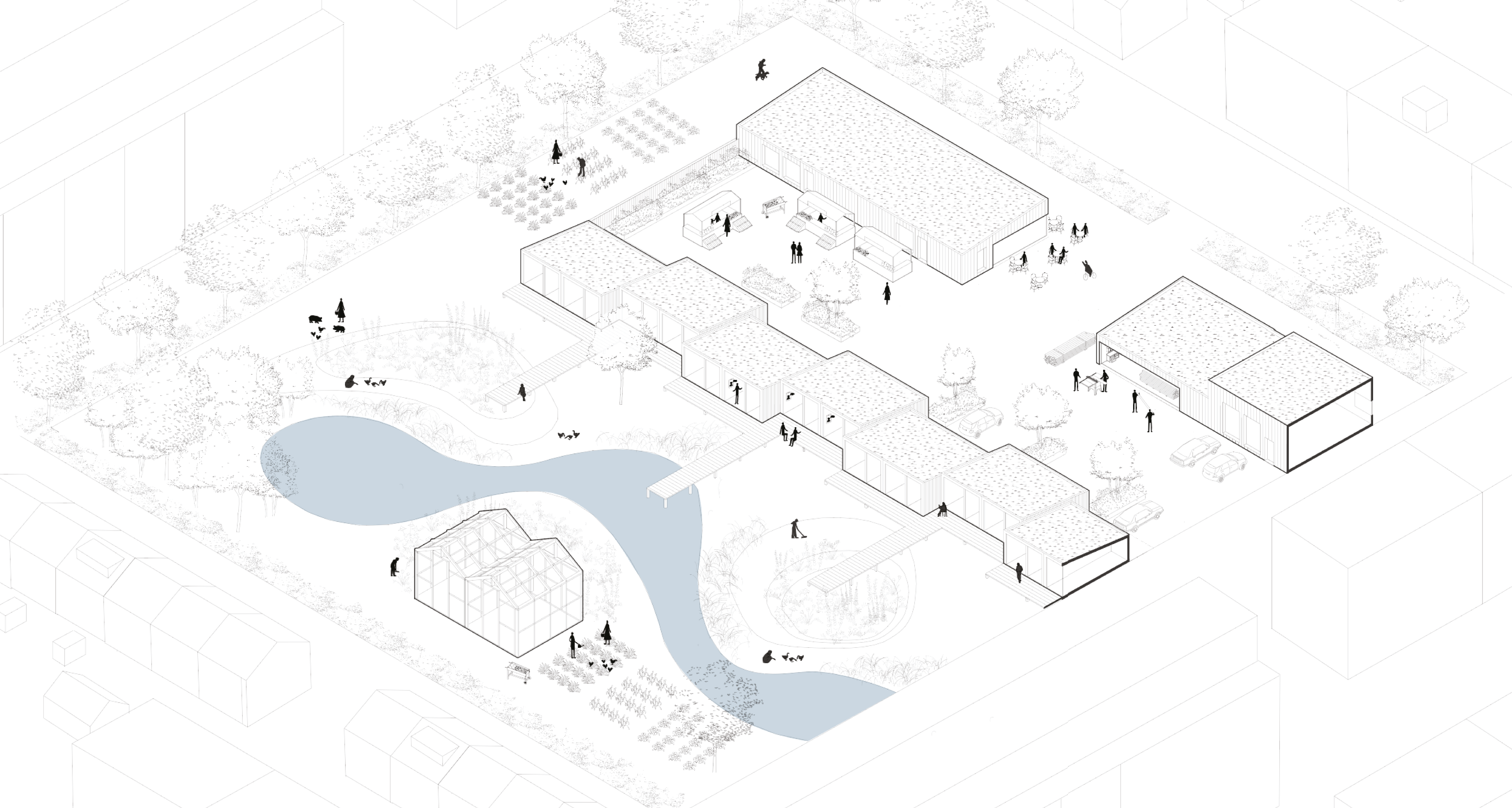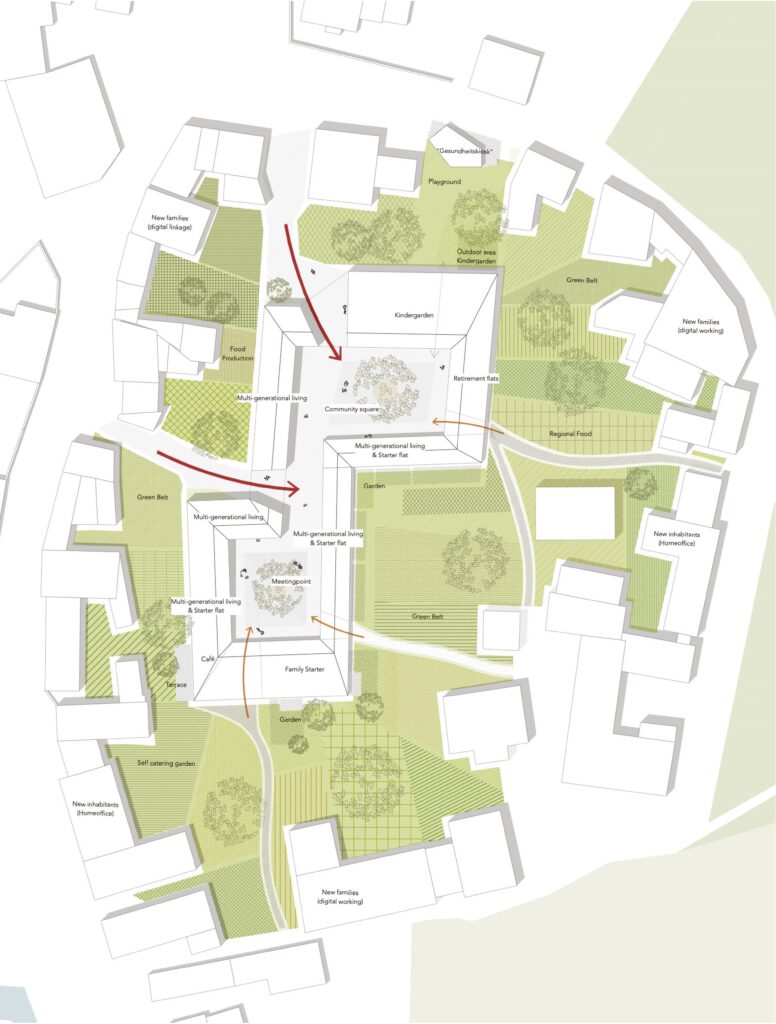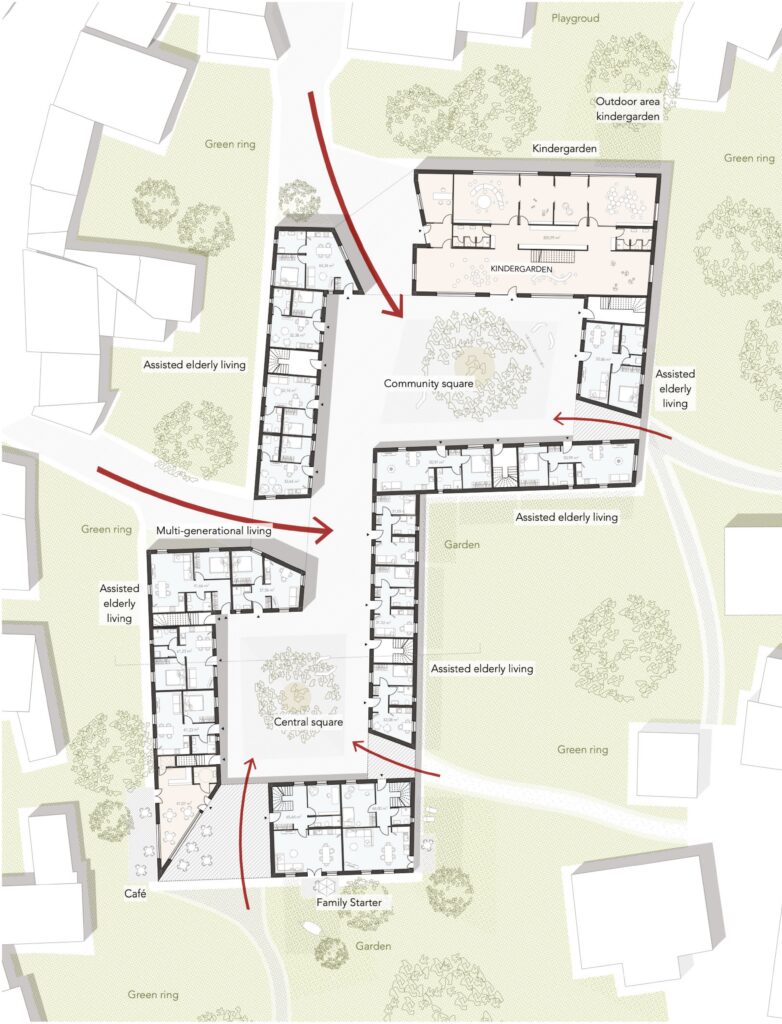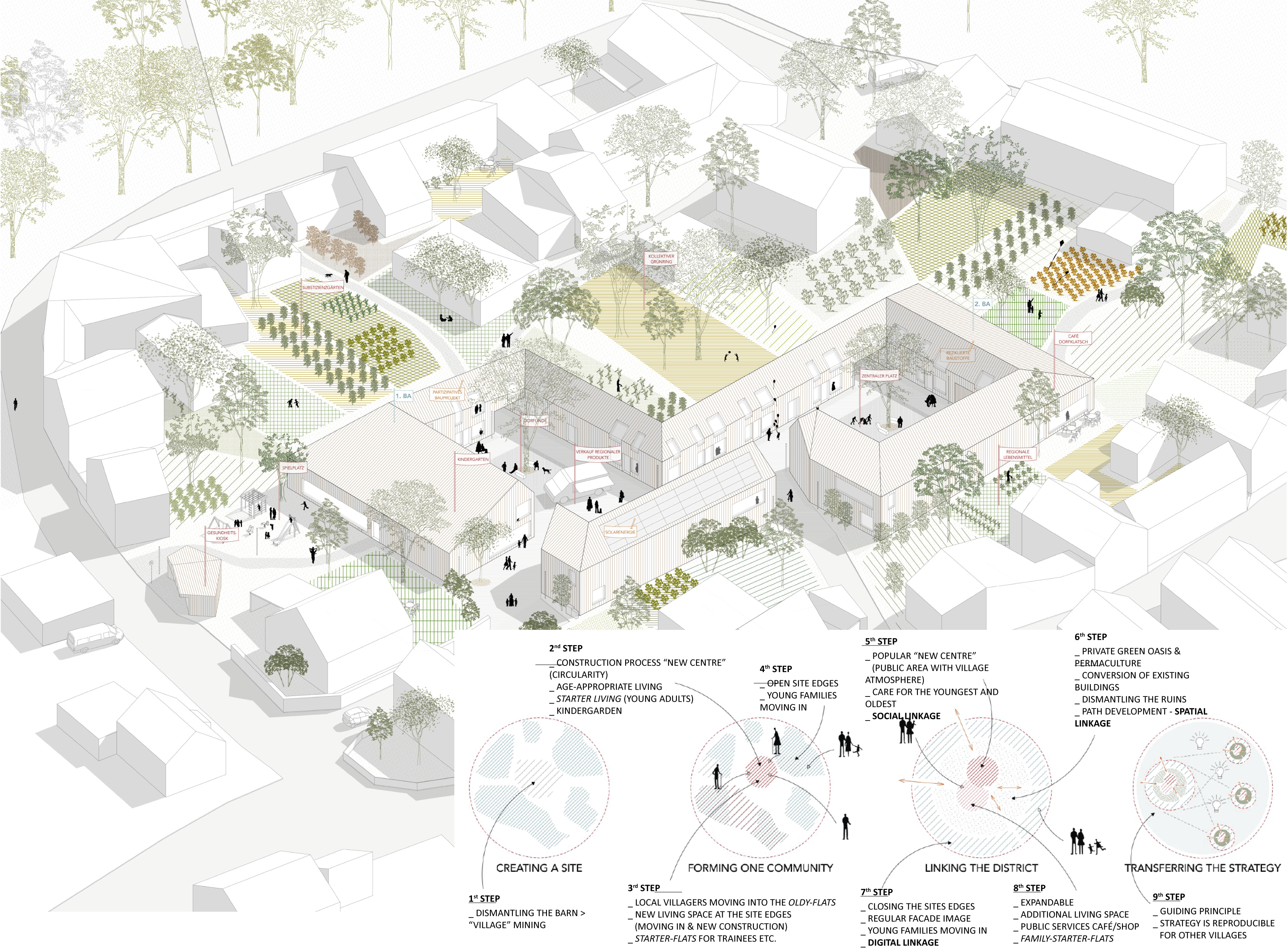
The future rural village – collaboration with PASEL-K architecten
Urleben, DE | 2020 | redevelopment vision | agricultural living, village communities, circular system
3rd prize international competition Landgut 2050, Stiftung Baukultur Thüringen
An action perspective has been developed for the redevelopment of a number of agricultural centres around the village of Urleben (Thuringia, Germany). It concerns an equal transformation of the original farming communities to a more differentiated environment, where original residents, young families from the city as well as special target groups form new collectives.
The basis for organization, management and programming is formed by the so-called “Village Corporation”, in which all residents have a share. Work is being done on the creation of a circular system in which services and products are exchanged at a local level, and landscape management and energy management are taken care of.
The model is based on solidarity, all members benefiting directly from the collective gain, as indirect and direct resources are brought into a circular system, and the social connection across all generations.
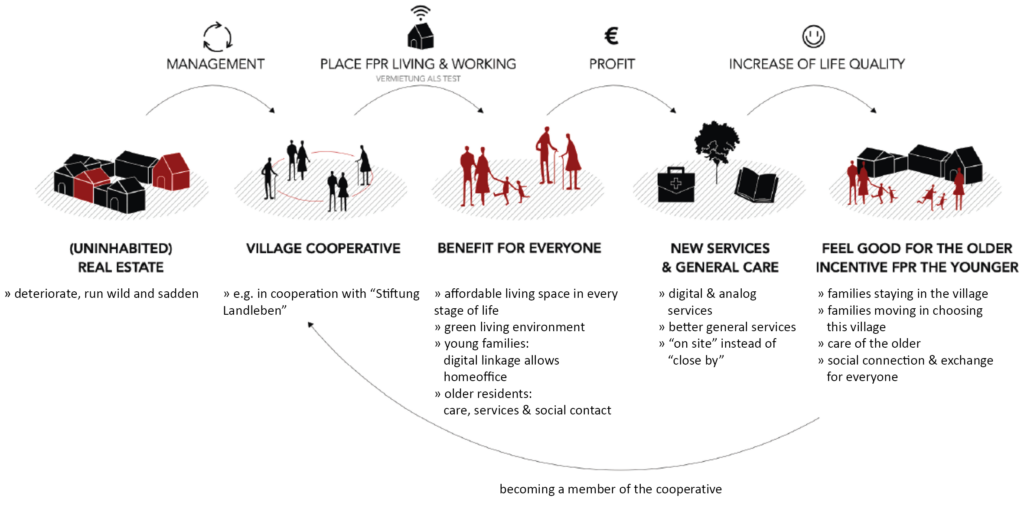
Based on the spatial, scenic and social linkage, the project creates an attractive quarter that strengthens, reconnects and realigns the village community. As the empty barn buildings inside the block are gradually being dismantled, the green belt grows as the quarter changes. The surrounding landscape extends into the quarter. The relationship between built-up and landscaped areas is continuously negotiated.
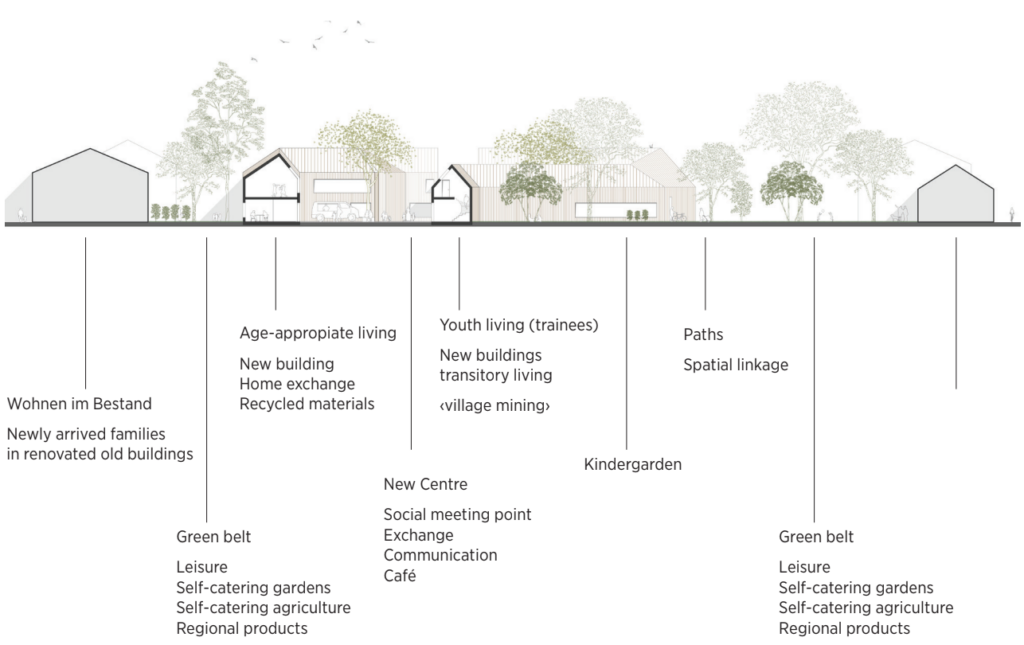
The village center is gradually remodeled and becoming a multi functional core, the »New Centre«, with apartments for young people on the way to self-employment, such as apprentices, the elderly and young families.
The building ensemble, which is gradually growing, specifically promotes the interplay of living – working – public services. With the focus on the care and supply of the youngest and the oldest and affordable housing, the social exchange and interaction is stimulated.
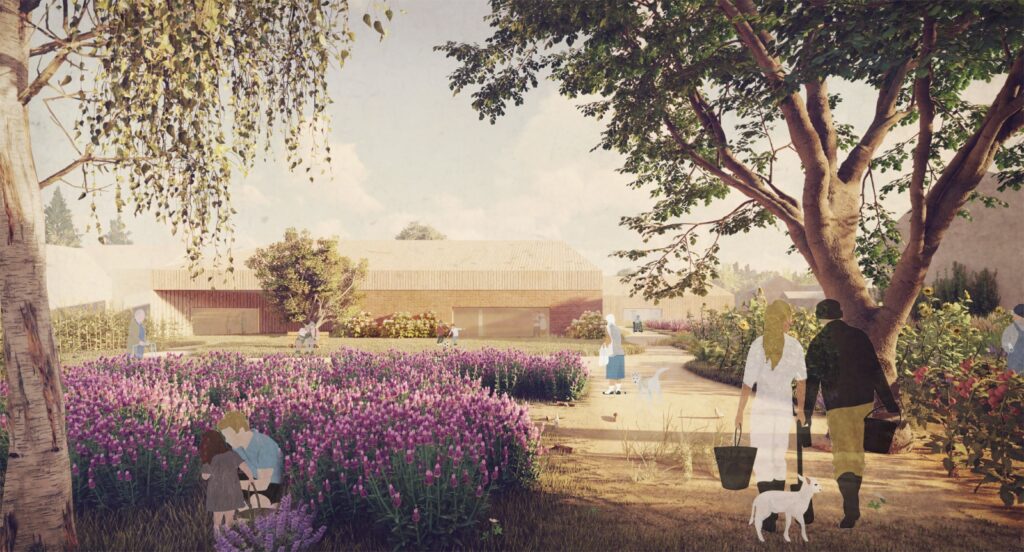
The collective kitchen and ornamental garden serves as a meeting point, daytime activities and education for everyone and, together with the ornamental garden, takes over a large part of the local food production in the sense of subsistence farming.
